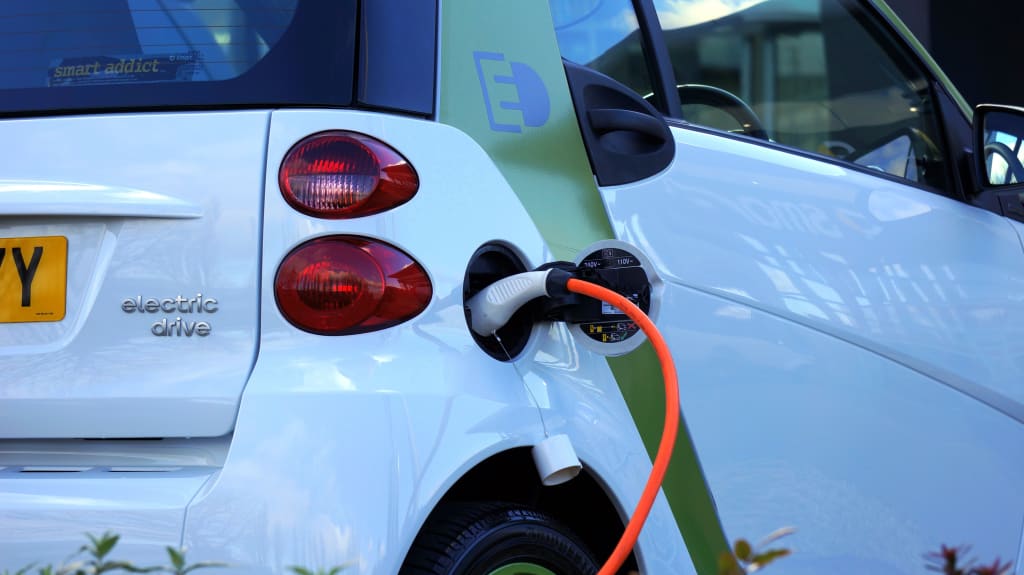Advancements in Electric Vehicles
Paving the Way for a Sustainable Future

Introduction:
The automotive industry has witnessed a remarkable transformation in recent years, with a significant shift towards sustainability and eco-friendliness. Electric vehicles (EVs) have emerged as the frontrunners in this new era, offering a cleaner, greener, and more efficient mode of transportation. Thanks to relentless innovation and technological advancements, electric vehicles have made tremendous strides, making them a viable and attractive alternative to traditional internal combustion engine (ICE) vehicles. In this article, we explore the most notable advancements in electric vehicles and their potential to revolutionize the future of transportation.
Extended Range and Improved Batteries:
Range anxiety has been one of the primary concerns hindering the widespread adoption of electric vehicles. However, recent advancements in battery technology have significantly alleviated this issue. Lithium-ion batteries, which power most EVs today, have seen remarkable improvements in energy density, allowing for longer driving ranges on a single charge. Additionally, research into solid-state batteries promises even higher energy densities, faster charging times, and improved safety.
Rapid Charging Infrastructure:
Charging infrastructure has been a crucial factor in promoting the adoption of electric vehicles. Fortunately, extensive efforts have been made to develop a robust and widespread charging network. Rapid charging stations, equipped with cutting-edge technology, have become increasingly prevalent, reducing charging times significantly. This advancement has bridged the gap between traditional refueling stops for ICE vehicles and the charging process for EVs, making long-distance travel more feasible.
Performance and Acceleration:
Electric vehicles have come a long way from being labeled as sluggish and lacking in power. Today, many electric cars boast astonishing acceleration and impressive performance figures, challenging conventional sports cars. The instant torque delivery characteristic of electric motors contributes to lightning-fast acceleration, making driving an electric vehicle a thrilling experience.
Vehicle-to-Grid (V2G) Technology:
In a bid to optimize energy usage and enhance grid stability, vehicle-to-grid (V2G) technology has emerged as a promising solution. This innovation allows electric vehicles to not only draw energy from the grid but also send excess energy back to it when parked or during peak demand periods. V2G integration enables a more dynamic and balanced energy distribution system, promoting grid resilience and reducing electricity costs for EV owners.
Autonomous Driving Capabilities:
The rise of electric vehicles has coincided with advancements in autonomous driving technology. Many EV manufacturers are integrating sophisticated driver-assistance systems and self-driving features into their vehicles. By combining electric powertrains with autonomous capabilities, the vision of clean, efficient, and safe transportation is being realized, with the potential to revolutionize the entire automotive industry.
Lightweight Materials and Design:
Efforts to improve the efficiency of electric vehicles have also led to advancements in vehicle design and materials. Engineers are increasingly turning to lightweight materials such as carbon fiber, aluminum, and composites to reduce overall vehicle weight, thereby extending range and enhancing performance. Furthermore, innovative aerodynamic designs are being employed to minimize drag, ultimately boosting energy efficiency.
Integration of Renewable Energy:
Electric vehicles complement the push towards renewable energy sources perfectly. Many electric vehicle owners are embracing home solar panels and other renewable energy solutions to charge their cars sustainably. As the world transitions to cleaner energy grids, the carbon footprint of electric vehicles will further diminish, solidifying their position as an environmentally friendly transportation option.
Conclusion:
Advancements in electric vehicles have transformed the automotive landscape, ushering in a new era of sustainable transportation. With extended driving ranges, rapid charging infrastructure, improved batteries, and cutting-edge technologies like V2G and autonomous driving, electric vehicles have become a compelling choice for environmentally conscious consumers. As these advancements continue to progress, electric vehicles are poised to become even more accessible, efficient, and affordable, steering us toward a greener and cleaner future on the roads. The collective efforts of automakers, researchers, and policymakers will undoubtedly play a pivotal role in shaping the trajectory of electric vehicles as we move towards a sustainable and emissions-free transportation ecosystem.






Comments
There are no comments for this story
Be the first to respond and start the conversation.